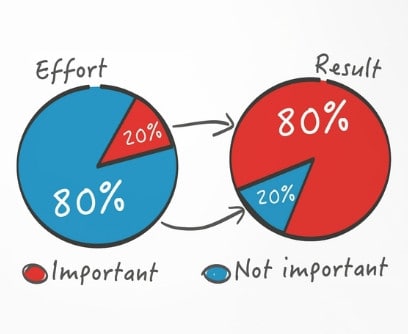Just in the previous entry of «Did you know…» I was talking to you about the way and quantity in which words appear in any written language, however when it comes to speaking it is a little different, since only a minimum of words are used, thus fulfilling the Pareto principle, where the 20% of words shapen the 80% of everything that is said.
What's more, according to a statistical study of the language, the 25 most used words in any language form the 33% of everything that is said, and the 100 most used words form the 50% of everything that is said.
This can also be explained by the law of least effort, whereby an individual who speaks will resort to the shortest and simplest words with which he can express what he thinks, while the individual who listens would greatly prefer to deal with somewhat longer and simpler words. complex words that would give you a more detailed understanding of your partner's thoughts without having to put in as much effort as listening to more ambiguous words and terms.

He Pareto principle was described by the economist and sociologist Vilfredo Pareto, which specifies an unequal relationship between inputs and outputs. The principle establishes that the 20% of what happens is responsible for the 80% of the results obtained. Put another way, the 80% of the consequences are derived from 20% of the causes; This is also known as the “Pareto rule" wave "80/20 rule.”
Some other examples of this 80-20 ratio could be:
- The 20% in bean pods contains the 80% in beans.
- The 20% of the ground is stepped on by the 80% of the walkers who pass through that area.
- Of the things we remember, one 20% we remember the 80% of perfection, while of the other 80% of things we remember we only have a clear 20%.
- Larger software companies, such as Microsoft, report that 80% of software bugs are caused by 20% of logged errors.
- The 20% of the world's inhabitants own exactly 82.5% of all the existing money.
- The 20% of effort produces 80% of final work, while the other 20% of work requires 80% of time spent.
- Etc…
